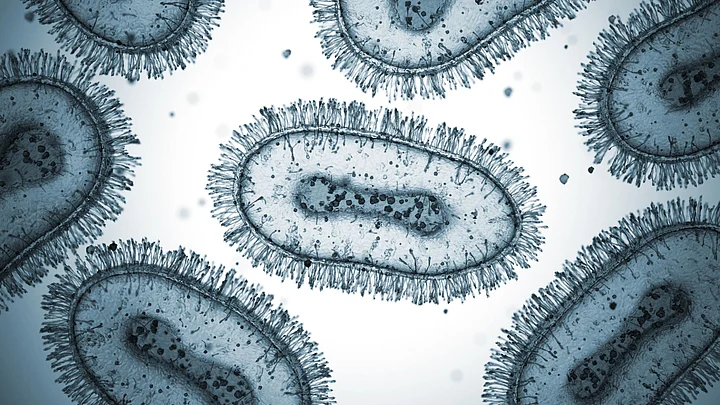With confirmed monkeypox cases in India rising to eight including one death from Kerala, scientists and researchers are trying to understand more about the spread of the disease. Genome sequencing of the first two cases from Kerala suggests that they are not linked to the monkeypox outbreak in Europe.
The first two monkeypox cases in Kerala had a travel history to the Gulf. In an email interview to TNM, Dr Vinod Scaria, a senior scientist at the Delhi-based Institute of Genomics and Integrative Biology (CSIR-IGIB), said, “The two genomes from Kerala suggest that they belong to a distinctly different lineage (A.2) compared to the B.1 lineage linked to the European superspreader events and outbreak of monkeypox in 2022.”
The genome sequencing was performed by the National Institute of Virology (NIV), Pune, and deposited in the GISAID, a global database.
The findings are significant. While there have been cases of monkeypox reported in several African countries since 1970, the first case of the ongoing outbreak of monkeypox was detected in May this year in the United Kingdom in an individual with travel history to Nigeria. Since then, monkeypox has spread to many countries, with superspreader events in Spain and Belgium.
However, in June this year, the United States’s Centers for Disease Control and Prevention (CDC)’s genetic sequencing data suggested that there are two distinct monkeypox outbreaks underway outside Africa, reported Stat.
While the genomes from the monkeypox cases in Europe and many parts of the world belong to the B.1 lineage, a small cluster – A.2 – has been reported in the US, Thailand and now in Kerala.
Stat reported that three out of the ten viruses that CDC had sequenced were not only different from the European lineage, but also that the three individuals had contracted monkeypox in three different geographical areas — Nigeria, West Africa, and the Middle East or East Africa.
Explaining the significance of the A.2 lineage, Dr Vinod Scaria had pointed out in a tweet, “The earliest sample in the cluster from the USA is indeed from 2021, suggesting the virus has been in circulation for quite some time, and earlier than the European events.”
“This would suggest this lineage has been spreading through human-human contact across different countries. The heightened awareness and surveillance and testing is possibly the reason for a higher number of cases being reported. More genomes would be required to draw broader conclusions,” Dr Scaria told TNM.
Out of the eight monkeypox cases detected in India, three do not have a history of foreign travel including the first case reported in Delhi. Dr Vinod Scaria said that genomes from the first case are not available in the public domain yet.
“We would possibly need more centres to perform genome sequencing and possibly sequence every single case since the sequences are invaluable in understanding epidemiology and evolution.”
As far as what India needs to do to contain the spread of monkeypox in the country, Dr Scaria said, “Effective and unambiguous public communication and increasing awareness among public as well as clinicians not to stigmatise the disease, and making people aware on how to protect themselves.”
He called for wider availability of testing, especially in Kerala given that it has significant infrastructure to perform RT-PCR testing in every district. He also said more genomes for genetic epidemiology are needed because genome sequences are invaluable.
“A programme for sentinel surveillance of travellers is important — at least in places like Kerala which have a significantly large expatriate population,” Dr Scaria said.
(Published in an arrangement with The News Minute.)

